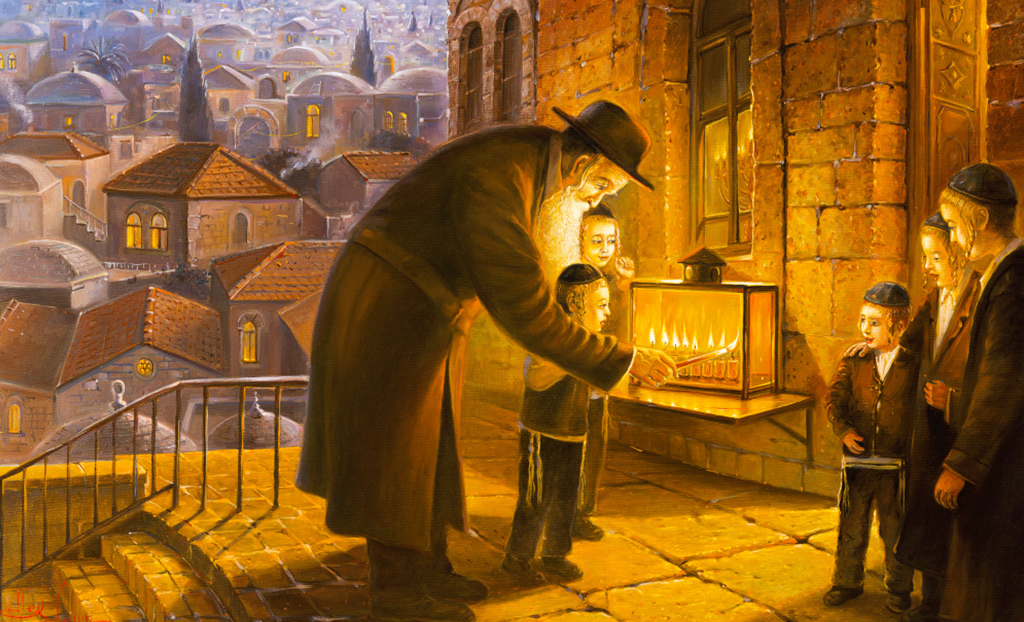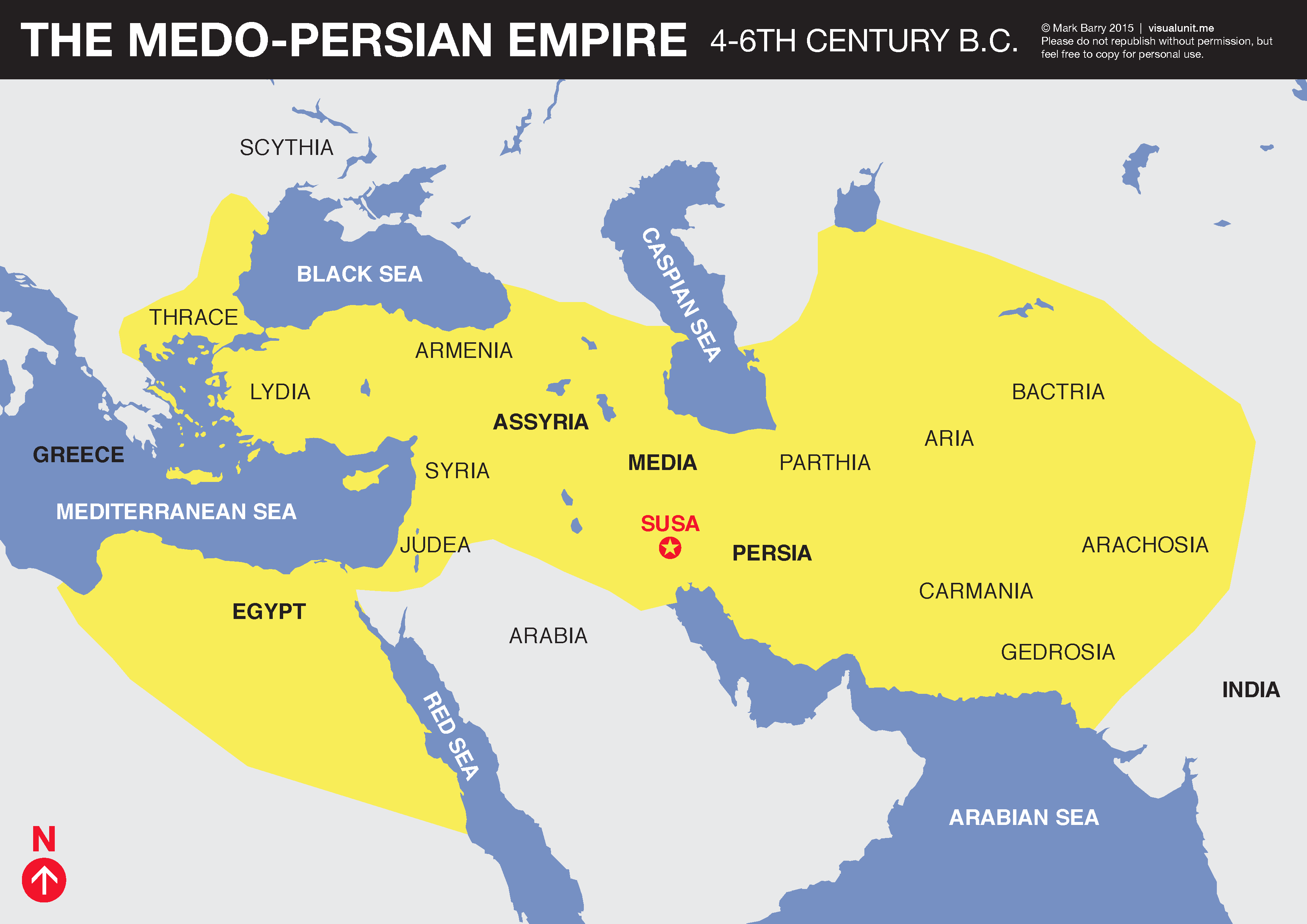Should Christians Celebrate Hanukkah?
Jesus Did.

Christmas is a great time of the year. Lights, presents and music are all parts of the Christmas tradition. And of course I have to mention the cheesy Hallmark Christmas movies. Although they all seem to have a similar plot, that’s part of what makes them relaxing to watch. Some Christians object to the pagan origins of December 25th and the Christmas tree among other things. But the tree and the day are not worshiped. It’s all about Jesus. As He as redeemed me, so he has redeemed the day.
What an opportunity for the world to once again hear the message. And what a great message it is – for it is the Good News! I love reading the birth narrative of Luke – it just overwhelms me. Luke is such a master storyteller.
The Christmas Story
From the first scene it draws me in: “In the time of Herod king of Judea there was a priest named Zechariah, who belonged to the priestly division of Abijah; his wife Elizabeth was also a descendant of Aaron. Both of them were righteous in the sight of God, observing all the Lord’s commands and decrees blamelessly. But they were childless because Elizabeth was not able to conceive, and they were both very old. The story continues with the appearance of Gabriel, the one who stands in the presence of God, who tells Zechariah about their son and his ministry, “to make ready a people prepared for the Lord.”
Then Gabriel appears to Mary announcing, “‘Greetings, you who are highly favored! The Lord is with you … You will conceive and give birth to a son, and you are to call him Jesus. He will be great and will be called the Son of the Most High. The Lord God will give him the throne of his father David, and he will reign over Jacob’s descendants forever; his kingdom will never end.”
What happens next is one of the most famous stories of all time. You can read it in any Bible, at the beginning of the gospel of Luke. To make a long story short, after Mary’s encounter with the angel Gabriel, she pays a visit to her cousin Elizabeth, who’s already six months pregnant with John the Baptist. Then she sings one of the most beloved canticles in all of Scripture, often referred to as the Magnificat. Then we learn of the birth of John, followed by Zechariah’s song of praise. Then the story is told of the census in Israel which compels Joseph and Mary to travel to Bethlehem, where the only place to stay was a stable. This, of course, is where Yeshua was born.
Following this, we all know about the angels appearing in the heavens. They gloriously proclaim the birth of the Messiah to the shepherds in the field, who immediately rush to the stable to visit the baby. They leave praising God and telling everyone they can find the Good News.
But what does this have to do with Hanukkah?
I’m glad you asked.
Where does that story begin? With the Maccabees, or Queen Esther, or Ezra, or Nehemiah, or further back in history with King David or King Solomon? Maybe back to Moses and the Exodus or to Abraham and the Patriarchs. Well, all of those are important characters in our history – the history of Israel and the history of Christianity.
But to keep this short let’s start with the Maccabees, or better yet, with Alexander the Great. This Greek king conquers the Middle East, and forms the foundation of the tale. In fact, 1 Maccabees (an inter-testamental apocryphal book) starts with him: “After Alexander, the son of Philip the Macedonian…” and continues by recounting the history of his death at age 33 (in 323 BC) and the division of his Greek empire among his four generals. One of these was named Seleucid, who was eventually succeeded by his son Antiochus I.
Three generations later (175 BCE) Antiochus IV Epiphanes became king of the Seleucid Empire of Syria. After assuming the throne he invaded Judah, looted the Temple, halted all services and outlawed the practice of Judaism. Eight years later, Antiochus erected an altar to Zeus in the Temple, banned circumcision, and ordered pigs to be sacrificed on the altar.
Two years after that, a group of Jewish rebel warriors called the Maccabees rose up and defeated the Seleucid Empire. Finally, when they were able to reoccupy the Temple, they were determined to see it cleansed (new altar, new vessels, etc.) and rededicated. It is from this dedication that we get the Hebrew word “Hanukkah”, and its English equivalent, “The Festival of Dedication”.
The Maccabees’ Miracle
When the Maccabees won there was only enough olive oil to light the Temple menorah for one more day. It would take eight days to purify the Temple, and produce new oil, but it was impossible to do with only one day’s worth of light. So the miracle is this: that tiny jar of oil lasted not one, but the full eight days.
That alone would be astonishing enough, but the greater miracle was the upset victory of the Maccabees over the much larger and better-equipped Seleucid army. Think of Antiochus like a pre-figuration of Hitler. He would stop at nothing to destroy the Jewish people, and wipe their memory from the earth. But like Hitler, and so many others, he failed. Israel was spared, and her purpose, to be a blessing to all nations, was preserved. The light in the Temple, instead of being extinguished, grew to illuminate the entire world.
From One Oppressive Empire to the Next
This story had a big impact upon first century thought. Just as the Maccabees liberated Israel there was the expectation of another such event, a Messiah, that would come and free the Jews of the oppressive rule of the next great empire—Rome. So Messianic expectations ran high as various groups such as the Zealots sought to overthrow the Romans. The twelve disciples even thought Jesus might be the one to establish a new kingdom.
Would the story of Christmas, of Jesus and his birth, be possible without the Maccabees? Perhaps not. Without the Maccabees where would the Jews be? Would they have even existed? There would have been no circumcision, no Temple, no Temple services, and no Passover or festival events. Would there have been any Jewish identity at all? Would there have been any Jews to receive the gospel message—the good news of the Kingdom?
Jesus’ birth, life, and ministry is a Jewish story embedded in the covenants God made with Abraham, Isaac, Jacob and the children of Israel at Mt. Sinai. It is a redemptive story, first to Israel and then to the nations. So how could it go to the nations unless it had first been given to Israel? And where would Israel be without the Maccabees? Jesus apparently recognized this, as he celebrated the the Festival of Dedication at the Temple. (John 10:22-24)
Does That Mean Christians Should Celebrate Hanukkah?
OK, so this is a good Jewish story. But what about Hanukkah and Christians – after all we have Jesus, and isn’t that all we need? Where does our story—the Christian story—start? Many claim that the church (Christianity) started at Pentecost and thus their identity begins with Matthew and the gospel stories.
I think by doing so we lose a vast part of our Christian heritage and identity which really begins with Abraham. If our heritage begins with Abraham then the Maccabee’s story is part of our heritage. The cleansing and re-dedication of the temple is part of our story and even more personally it is part of my story, my history, and my identity. Celebrating Hanukkah has now become very personal. When I say that it is mine I do not mean to take it away from the Jews, but rather to join with them, as I have been grafted into the Olive Tree.
Isn’t it time that we reclaimed our lost heritage? Let’s light the candles and celebrate Hanukkah, because it’s just as much a part of our identity and heritage as Christmas!

